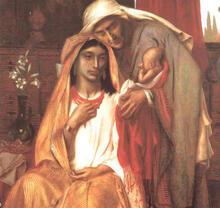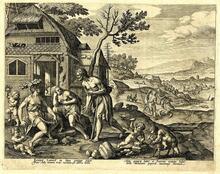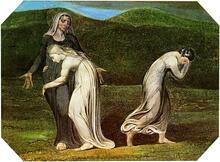Naamah: Bible
Naamah is one of only three women included in the genealogies of the early chapters of Genesis. The names of Naamah’s three brothers are linked to their archetypal occupation. Though no vocational role is ascribed to Naamah, her name may signify one. The roots of her name may make her the ancestral singer, which would support the idea that Naamah is the archetypal founder of vocal music.
Article
Naamah is one of only three women included in the genealogies of the early chapters of Genesis. Those lists of names serve the literary purpose of expanding the world’s population from the primal pair (Eve and Adam) to the populated territories of the known world that form the backdrop to the emergence of the Israelite ancestors (Sarah and Abraham) at the end of Genesis 11. The three females are the two wives and one daughter of Lamech, whose offspring constitute the seventh generation after creation. The symbolism of the number seven in the Bible points to the seventh generation as significant: humanity is now fully launched. Lamech’s children thus are the human founders of vocations, in contrast to divine creators of cultural roles that characterize many mythological beginnings tales.
As the daughter of Zillah, Naamah is the sister and half sister of three brothers, all founders of an aspect of human culture. Their names are linked to their archetypal occupation (for example, the name Jubal, ancestor of instrumental musicians, may be related to the Hebrew word for “horn” or “trumpet”). No vocational role is ascribed to Naamah; however, her name may signify one. It comes from the Hebrew root n‘m, which means “to be pleasant” or “lovely” (compare Naomi); but the same stem can mean “to sing,” which would make her the ancestral singer. The intimate connection between women and song, going back to the maternal tuneful, rhythmic soothing of infants and found widely across cultures, would support the idea that Naamah is the archetypal founder of vocal music.
Meyers, Carol. “Mother to Muse: An Archaeomusicological Study of Women’s Performance in Ancient Israel.” In Recycling Biblical Figures: NOSTER Conference 1997, edited by Athalya Brenner and Jan Willem van Henten. Leiden, Netherlands: 1998.
Meyers, Carol, General Editor. Women in Scripture. New York: 2000.








